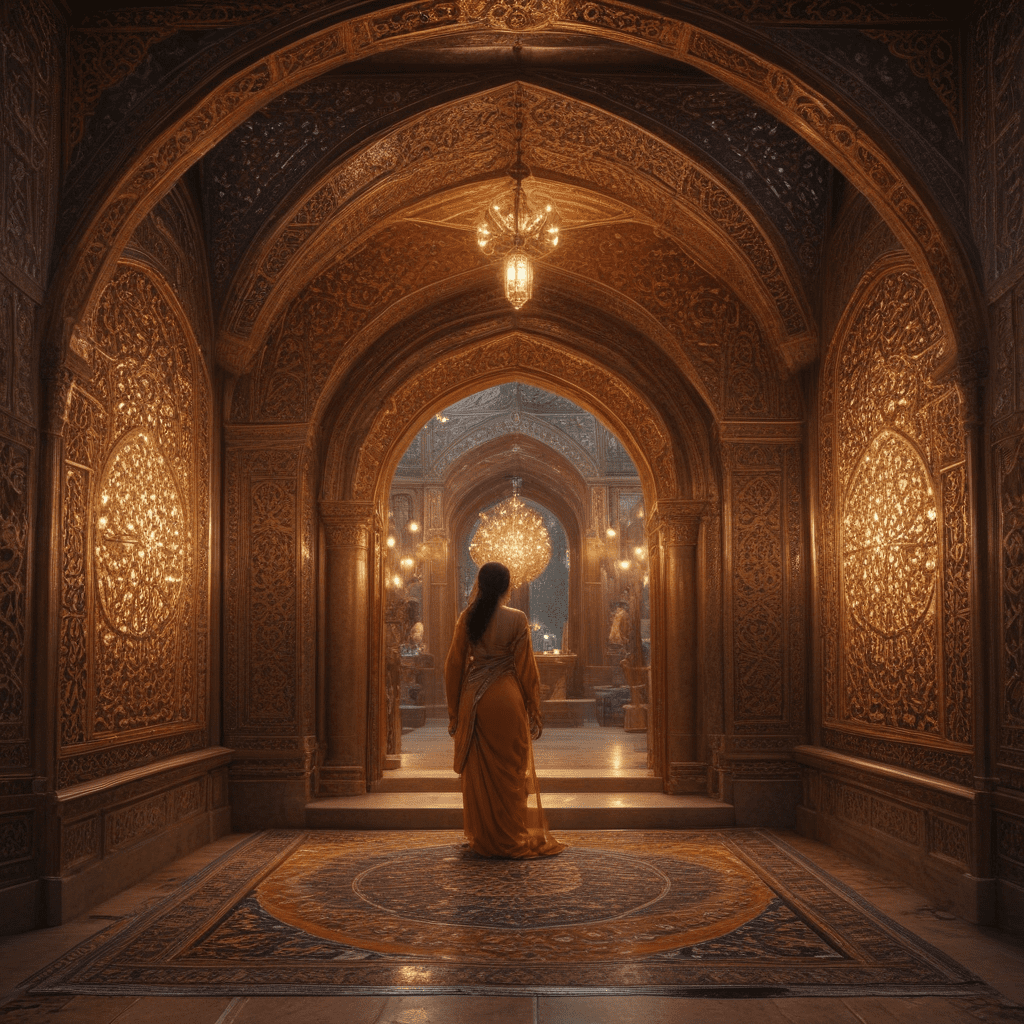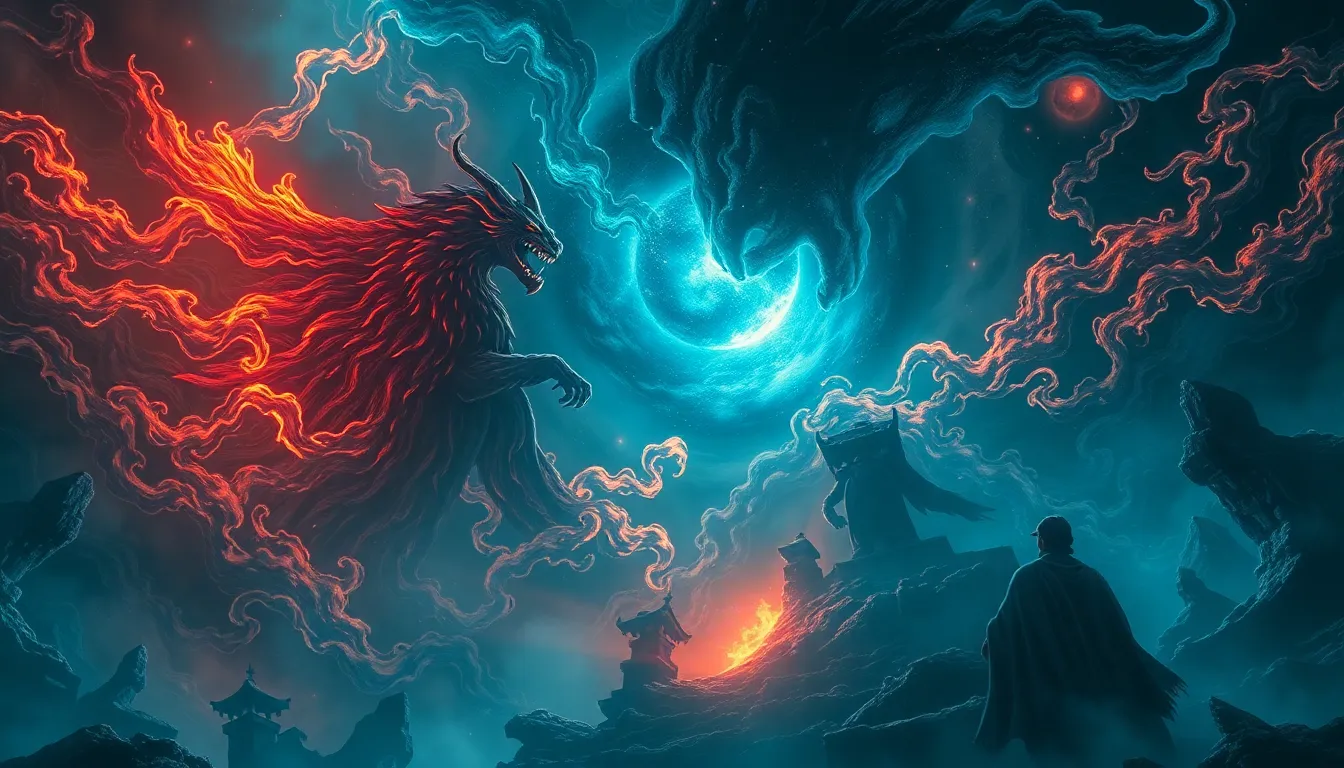The Mythical Journeys of Cultural Heroes Through Time
Introduction to Cultural Heroes
Cultural heroes are figures that embody the values, ideals, and aspirations of a society. They often emerge from the depths of mythology, representing the struggles and triumphs of humanity. These heroes are significant because they serve as symbols of hope, courage, and moral integrity, guiding individuals and communities through challenges. This article aims to explore the mythical journeys of cultural heroes across different societies, examining their cultural implications and the lessons they impart.
The Archetype of the Hero’s Journey
One of the most influential frameworks for understanding the journey of cultural heroes is Joseph Campbell’s concept of the monomyth, often referred to as the “Hero’s Journey.” This narrative structure encompasses several stages, including:
- The Call to Adventure
- The Refusal of the Call
- The Mentor’s Assistance
- The Crossing of the Threshold
- The Trials and Challenges
- The Return Home
This hero’s journey serves as a universal template found in myths from various cultures around the world. Despite differences in context and characters, the underlying themes of growth, transformation, and self-discovery resonate universally.
The Role of Myth in Society
Myths play a crucial role in shaping cultural identity and values. They provide a framework for understanding the world and one’s place in it. Myths often reflect societal norms, challenges, and aspirations, acting as a mirror to the human experience. For example:
- Myths can reinforce cultural values, such as bravery, loyalty, and sacrifice.
- They often address societal issues, providing insight into the collective psyche.
- Through storytelling, they preserve history and foster a sense of belonging.
Overall, myths serve as a vital tool in the continuity of cultural narratives and the exploration of the human condition.
Legendary Heroes from Ancient Civilizations
Throughout history, numerous legendary heroes have emerged, each with their unique journeys and quests. Notable figures include:
- Gilgamesh – The king of Uruk, Gilgamesh embarks on a quest for immortality, ultimately learning about the value of friendship and the acceptance of mortality.
- Hercules – Known for his incredible strength, Hercules faces twelve labors that test his courage and resolve, symbolizing the struggle against one’s inner demons.
- Odysseus – The protagonist of Homer’s “The Odyssey,” Odysseus’s journey home after the Trojan War is fraught with trials that highlight themes of cunning, endurance, and the longing for home.
These heroes not only represent their respective cultures but also embody universal themes of struggle, growth, and the quest for meaning.
Cultural Heroes in Eastern Mythologies
Eastern mythologies also feature profound heroes whose journeys influence philosophies and religions. Notable figures include:
- Sun Wukong (the Monkey King) – A central character in the Chinese epic “Journey to the West,” Sun Wukong’s rebellious nature and quest for enlightenment reflect themes of transformation and the pursuit of knowledge.
- Siddhartha Gautama (Buddha) – The journey of Siddhartha from prince to enlightened being illustrates the quest for spiritual awakening and the importance of overcoming suffering.
These cultural heroes have left a lasting impact on Eastern philosophies, emphasizing the significance of personal and spiritual journeys.
Modern Interpretations of Heroic Journeys
In contemporary literature and film, traditional hero myths are often reinterpreted to resonate with modern audiences. Examples include:
- Frodo Baggins – The reluctant hero of J.R.R. Tolkien’s “The Lord of the Rings,” Frodo’s journey to destroy the One Ring showcases themes of friendship, sacrifice, and the burden of responsibility.
- Harry Potter – The young wizard’s journey through adversity, friendship, and self-discovery highlights the timeless nature of the hero’s journey, appealing to both young and adult audiences alike.
These modern heroes embody the same archetypal struggles as their ancient counterparts, proving that the hero’s journey continues to resonate with contemporary society.
The Influence of Cultural Heroes on National Identity
Cultural heroes often play a vital role in shaping national identities and collective memory. They serve as symbols of national pride and resilience. Examples include:
- Robin Hood – The legendary outlaw represents the fight against injustice and the defense of the oppressed, embodying the spirit of English folklore.
- King Arthur – The mythical king symbolizes chivalry and nobility, reflecting ideals of unity and leadership in British culture.
- Cú Chulainn – A hero from Irish mythology, Cú Chulainn exemplifies bravery and loyalty, serving as a symbol of Irish identity.
These national heroes contribute to a shared narrative that unites people through history, values, and aspirations.
The Journey of the Anti-Hero
In recent years, the emergence of anti-heroes has challenged traditional hero narratives. Characters such as:
- Walter White from “Breaking Bad” – A high school chemistry teacher turned methamphetamine manufacturer, Walter’s journey explores moral ambiguity and the consequences of choices.
- Deadpool – A superhero with a dark sense of humor, Deadpool subverts conventional heroism, showcasing a more complex and flawed character.
These anti-heroes provoke thought about morality, ethics, and the nature of heroism, reflecting the complexities of modern society.
The Psychological Dimension of Heroic Journeys
Carl Jung’s theories on archetypes and the collective unconscious provide a psychological perspective on heroic journeys. According to Jung, these archetypes represent fundamental human experiences and emotions. The hero’s journey can serve as a map for personal development and self-discovery, allowing individuals to:
- Confront their fears and insecurities.
- Embrace transformation and growth.
- Discover their purpose and identity.
Understanding the psychological dimension of these journeys enriches our appreciation of their significance in personal and societal contexts.
Conclusion: The Timeless Relevance of Cultural Heroes
In summary, cultural heroes and their mythical journeys play an essential role in shaping identities, values, and collective narratives across societies. From ancient civilizations to modern interpretations, these heroes embody universal themes of struggle, growth, and transformation. As we reflect on their journeys, we recognize their enduring power and relevance in contemporary society, offering valuable lessons for future generations. The mythic journeys of cultural heroes remind us of our shared humanity and the timeless quest for meaning and understanding.




